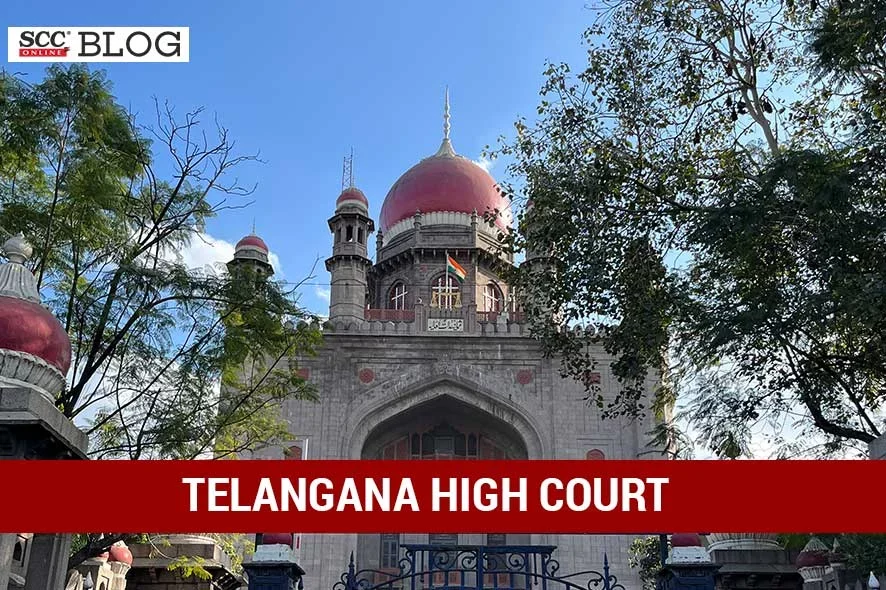Telangana High Court: A petition was filed under Article 226 of the Constitution praying that respondents’ action in not permitting women members of Akhbari Sect of Shia Muslims for conducting Majlis, Jashans and other religious prayers in Ibadat Khana, situated in Darulshifa, Hyderabad, be declared as illegal, arbitrary, and violative of Articles 14 and 25 of the Constitution. Nagesh Bheemapaka, J., opined that when Waqf Board permitted Shia Muslim women to enter prayer halls, it was not known why they had prohibited Akhbari Sect of the same community to enter Ibadat Khana. Thus, the Court passed an interim order directing respondents to forthwith permit women members of Akhbari Sect of Shia Muslim for conducting Majlis, Jashans and other religious prayers in Ibadat Khana.
Petitioner submitted that in Ibadat Khana, even Shia Muslim women were entitled to perform Majlis, Jashans and other religious prayers which was a fundamental right guaranteed to them under the Constitution. Petitioner drew Court’s attention to the proceedings dated 15-06-2007 issued by the Waqf Board enabling Shia Muslim women to conduct Majlis in the Ibadat Khana. Petitioner’s grievance was that Respondent 3, who was a self-styled Committee, also sensitized that Shia Muslim Women of Akbari Sect of Shia community were not being allowed to perform Jashans, Majlis and, other religious prayers in tune with Wakfnama, and on the contrary, Respondent 3 was permitting Shia Muslim women of Usooli Sect for performing activities which were not mentioned in the Wakfnama.
Petitioner submitted several representations to the Telangana State Waqf Board to permit ‘Shia Muslim women to conduct Majlis, Jeshans and other religious prayers, but no action was taken by them. Thereafter, they approached the police, who became mute spectators and having no other alternative, petitioner approached this Court.
The Court relied on Indian Young Lawyers Assn (Sabarimala Temple, In Re) v. State of Kerala, (2019) 11 SCC 1, wherein the Supreme Court observed that “Article 25(1) of the Constitution protects the equal entitlement of all persons to a freedom of conscience and to freely profess, protect and propagate religion. By conferring this right on all persons, the Constitution emphasized the universal nature of the right. By all persons, the Constitution means every individual in society without distinction of any kind whatsoever was entitled to the right. By speaking of an equal entitlement, the Constitution places every individual on an even platform. Having guaranteed equality before the law and the equal protection of laws under Article 14 of the Constitution, the draftspersons specifically continued the theme of an equal entitlement as an intrinsic element of the freedom of conscience and of the right to profess, practice and propagate religion.”.
The Court opined that except during a particular period which was given as the ‘rest period’ for women by the nature itself, there was no bar against women to offer prayers.
The Court opined that when the Waqf Board permitted Shia Muslim women to enter into prayer halls, it was not known why they had prohibited Akhbari Sect of the same community to enter into Ibadat Khana. This itself manifested clear discrimination on the part of respondents. The Court thus opined that respondents’ action amounts to violation of fundamental rights guaranteed to petitioner under Articles 14 and 25(1) of the Constitution.
Thus, the Court passed an interim order directing respondents to forthwith permit the women members of Akhbari Sect of Shia Muslim for conducting Majlis, Jashans and other religious prayers in the Ibadat Khana.
The matter would next be listed on 03-01-2024.
[Shia Imamia Ithna Ashari Akhbari (Regd) Society v. State of Telangana, 2023 SCC OnLine TS 3959, Order dated 06-12-2023]
Advocates who appeared in this case :
For the Petitioner: Mir Lukman Ali, Advocate
For the Respondents: GP for Social Welfare







